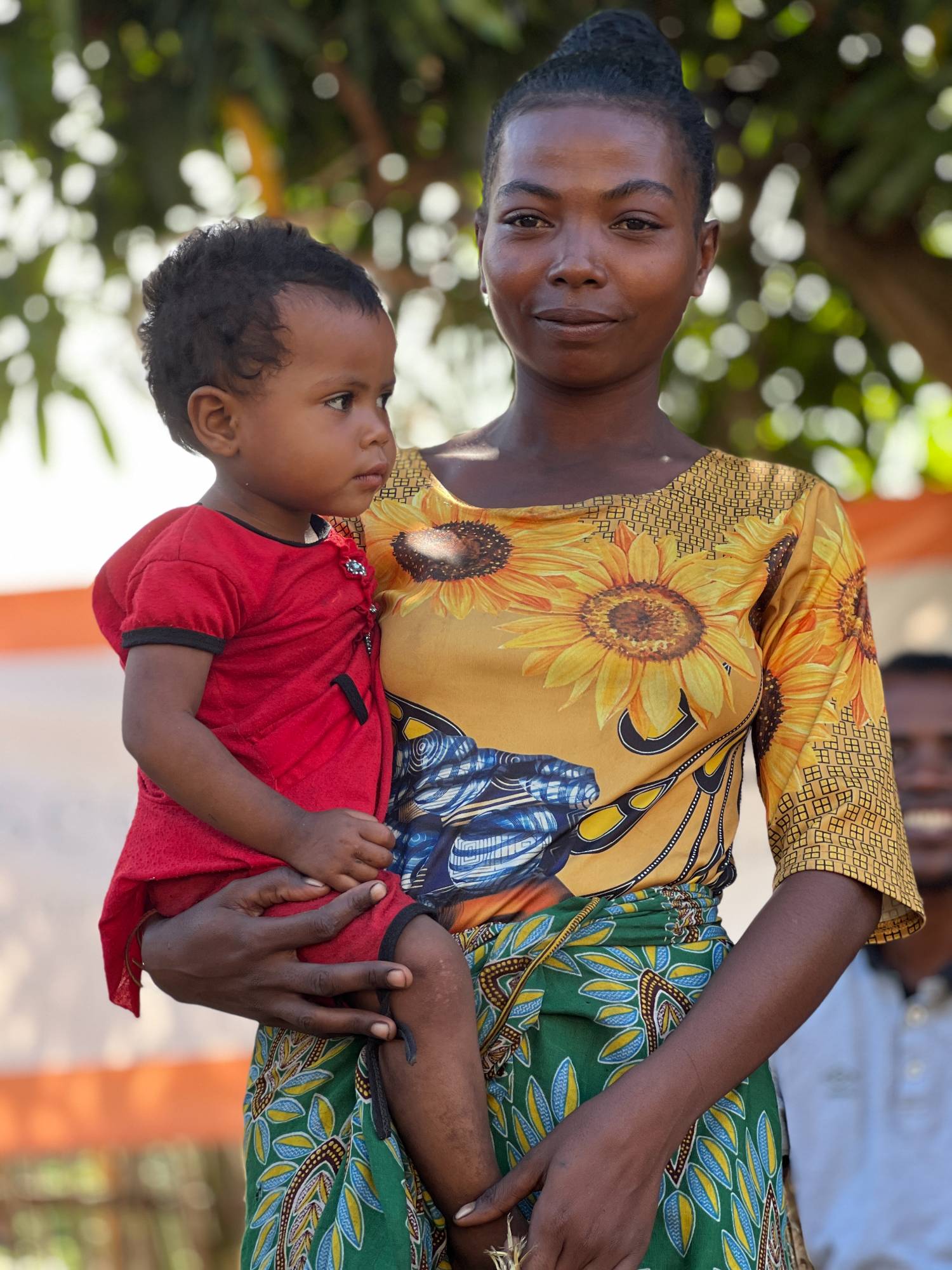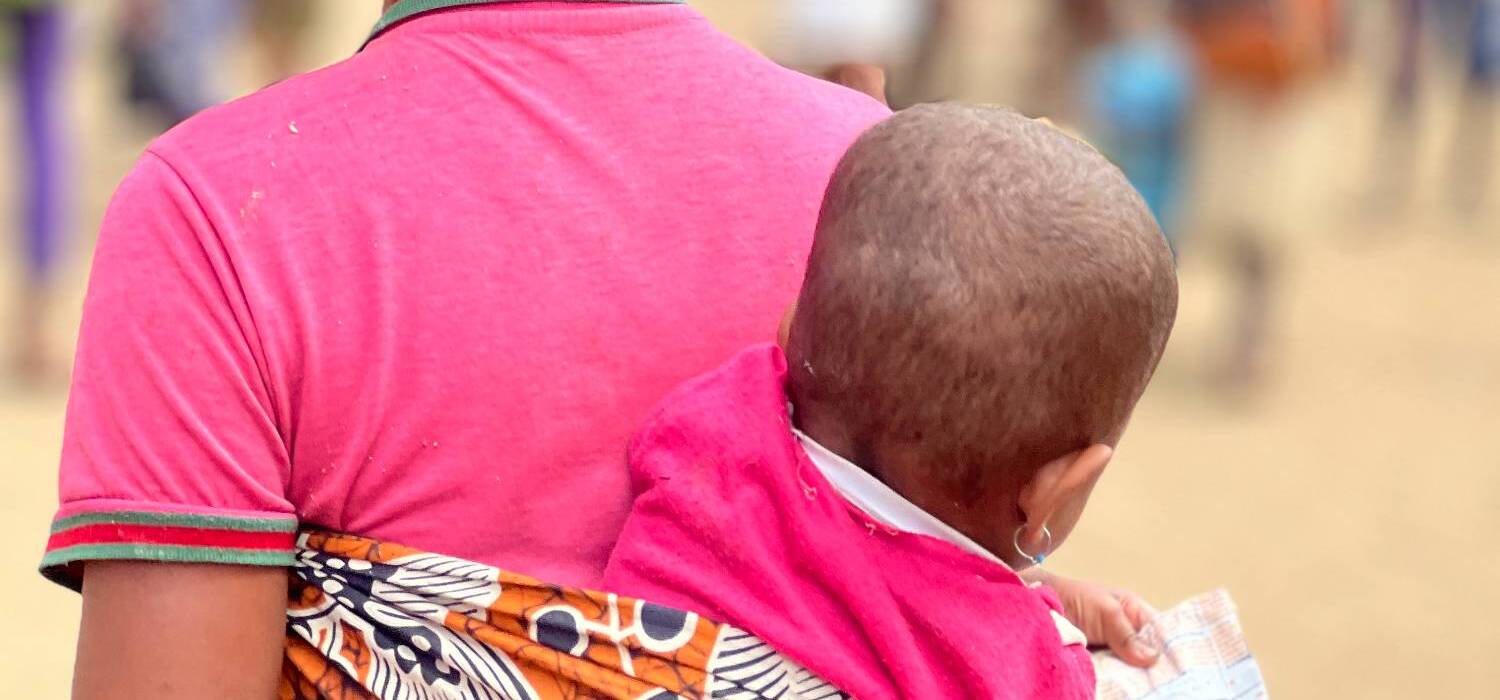Introducing the Reninjaza: Understanding the role of traditional medicine during pregnancy in Fort Dauphin, Madagascar
Madagascar community-level health education and behaviour change interventions are a necessary and strategic approach to improving maternal health.”1
SEED Madagascar’s (SEED) community health projects work to reduce the maternal mortality rate which remains consistently high in Madagascar at 426 per 100,000 live births1,2. This is a far cry from sustainable development goal 3 (SDG 3) which aims to reduce global mortality figures to less than 70 per 100,000 live births by 2030 2. Delayed access to biomedical care in the face of obstetric complication or emergency is one of the leading contributary factors of Madagascar’s elevated mortality rates [2]. As a result, most maternal deaths are avoidable and occur in the later stages of pregnancy from hypertension, haemorrhage, obstructed labour, and infection3.
In the south of Madagascar, cost, distance, and lack of antenatal health knowledge, pose some of the greatest structural barriers to women accessing appropriate antenatal care2,4. Whilst SEED aims to share knowledge and encourage behavioural change towards less risky behaviours and choices among pregnant women and their families, there are nuanced socio-cultural barriers including, beliefs, traditions, and taboos that influence health seeking behaviours1. Many women today understand the importance of seeking out biomedical care especially in the face of obstetric emergency, however, due to the hierarchical structure of the family, young women are rarely primary decision makers. As a result, pregnant women often face pressure from their grandmothers, partners, and mothers-in-law to conform to tradition and consult traditional healers1.
"One beneficiary gave birth last week but sadly her new-born passed away after two days. The beneficiary noted that she knew she needed to go to the hospital, she learnt this from Project Votsira. Her mother-in law and husband refused to take her to the local health centre and consulted a traditional practitioner instead. This highlights the importance of the outreach household visits and including key decision makers in Votsira’s education sessions” – Gerard Andriatsiory - Project Coordinator for Project Votsira
Beliefs and taboos are widespread across Madagascar with many believing sickness to be located in a person’s social space5. For these reasons many Malagasy consult alternative and traditional methods of care which include, but are not confined to, home care, self-medication, and traditional care, provided by traditional healers2. There are many different types of traditional healers including herbalists, masseurs, traditional midwives, soothsayers, and astrologists however, categorisation is dependent upon region6. What seems to hold true for all practitioners is the use of the spirit to determine both illness and treatment. In Anosy, the Ombiasa (a type of traditional healer) perceives disease to be a biological disorder in the visible world resulting from social disorder in the intangible world; the therapist’s role is to enter social and sacred spaces to restore order and cure disease5. Many Malagasy often consult traditional healers in the first instance of illness however, this practice may be harmful to individuals who incur time delays which can lead to greater symptom severity before presenting to a biomedical health centre.
"When the patient has a high temperature and there are frequent convulsions, people think that there is a spirit, (and) only the traditional healer can remove it."4
The Ombiasa is sought out for protection in the early stages of pregnancy as there is a widespread belief that pregnancy can arouse jealousy in others who may act to poison a pregnant woman [1]. It is therefore common for pregnant women to wear a protective emblem that wards off evil spirits and jealousy. In fear of sabotage, pregnant women keep their pregnancy hidden for as long as possible however, this hinders SEED’s ability to recruit beneficiaries who are in their first trimester of pregnancy. The head of department for community health, Dr Mamy Soafaly Andriatsihosena, stated that the majority of women participating in SEEDs maternal and child outreach element of the Emergency Food Distribution (EFD), are recruited in their fifth or sixth month of pregnancy. This highlights the importance of SEED’s work in Anosy, where both project Votsira and EFD act to build knowledge and awareness of safe antenatal practices. These services can be accessed at local health centres as SEED works in partnership with the local Ministry of Health to provide health centre staff with the necessary technical skills to meet these needs.

Within the informal health sector in southern Madagascar, the Reninjaza or traditional midwife, is widely consulted. Practitioners do not receive formal training; their knowledge is passed down from female family figures including mothers and grandmothers. Many Reninjaza state that their role originates from ancestral heritage. As many Malagasy believe ancestry and divination to symbolise power and knowledge, Reninjaza’s are often preferred over biomedical midwives3,7. Traditional midwives are thus popular as many consider them to be more experienced than biomedical midwives, preferences also stem from their relative geographical proximity and low-cost service3.
Prenatal recommendations from Reninjazas differ with some advising to not drink standing up or eat banana leaves as some believe that the latter will turn the skin of the foetus green. A more common belief is to avoid eating bananas during pregnancy as they will give the baby too much strength making delivery difficult for the mother. In the post-partum period Reninjazas advise women on cleansing practices which aim to promote healing to return the body to its pre-pregnancy state. Some of these activities include the administration of hot water douches immediately after birth and advising women to crouch over burning charcoal to ‘cleanse and tighten’ the womb1. These activities are more commonly practiced in rural settings, however, a common practice regardless of setting is adhering to a period of confinement for up to four months following delivery. During this time women spend time indoors, they are wrapped in blankets with doors and windows shut, are instructed to consume warm herbal liquids, and double their daily food intake to up to six meals a day1. These conditions are followed to build strength and protect the mother from cold air, believed to disrupt breastmilk production1. However, this can bring Reninjazas into conflict with local clinicians who believe that there can be many negative effects to these postpartum confinement practices such as fever, dehydration, heat rash, heat stroke, and depression1.
Despite some of these advised practices posing potential risks to the health of both the mother and the new-born, there are many positive aspects to their work. Reninjazas are said to advise and encourage pregnant women to attend at least one prenatal consultation at their closest health centre, with some refusing to tend to women who have not [8]. Traditional midwives often continue to visit the mother and the child during the post-partum period to ensure their good health8. Not only is the role of the Reninjaza valuable as they attend to majority of births that occur outside of the clinical setting, there have also been many successful collaborative partnerships recorded. Many Reninjazas are said to accompany pregnant women to local health centres at the time of childbirth, especially women who are young, old, or whose pregnancy presents visible complications early on8. Many health facilities have authorised rituals to be practiced in clinical spaces to reduce the time taken before seeking biomedical assistance9. In some health centres, this supportive role has been combined with an assistant role. The doctor or the midwife entrusts the Reninjaza with certain “small tasks” that do not require skilled knowledge for example, washing equipment8. Some biomedical midwives appreciate being able to supervise their actions so they can teach them good practices, with some midwives feeling able to delegate work to Reninjazas once they have acquired necessary technical skills8.
The coexistence of traditional and biomedical medicine needs to be acknowledged in order to provide culturally appropriate, community driven maternal and child healthcare in Madagascar. Whilst a future that points to a collaborative working relationship looks promising, currently this partnership is not widespread. Therefore, SEED’s work is essential to providing pregnant women with the knowledge to make informed decisions about their health. Project Votsira works to overcome barriers to improving maternal and child health as it aims to raise awareness and enable behavioural change through collaboration with the Local Ministry of Health. This project overcomes some of the aforementioned obstacles by incorporating key familial decision makers into the education sessions, and providing technical training to health centre staff on obstetric and neonatal emergencies. Over the course of November 2022, SEED supported community health workers to deliver focus group education sessions covering the topics of colostrum, breastfeeding, nutrition and family planning. These educative sessions were further reinforced by follow-up household visits where community health workers provided culturally appropriate guidance including breastfeeding best practice. SEED’s work to support and strengthen the capacity of both communities and health centres is imperative to improving maternal and child health outcomes across Fort Dauphin, Madagascar.
References:
-
Favero, R., Dentinger, C. M., Rakotovao, J. P., Kapesa, L., Andriamiharisoa, H., Steinhardt, L. C. Rawlins, B. (2022). Experiences and perceptions of care-seeking for febrile illness among caregivers, pregnant women, and health providers in eight districts of Madagascar. Malaria Journal, 21(1). https://www.ncbi.nlm.nih.gov/pmc/articles/PMC9261007/
-
Pierlovisi, C., & Pourchez, L. (2014). Traditional medicine in Madagascar - current situation and the institutional context of promotion. Health, Culture and Society, 7(1), 16-27. https://hcs.pitt.edu/ojs/index.php/hcs/article/view/176
-
Worley, W. (2016). Traditional healers and modern medicine in Madagascar. https://www.aljazeera.com/features/2016/8/1/traditional-healers-and-modern-medicine-in-madagascar
-
Jackson, H. (2013). Traditional Healing in Madagascar: A Study of a Tandroy Ombiasa and his Methods of Healing. SIT Graduate Institute/SIT Study Abroad: Independent Study Project (ISP) Collection.
-
Morris, J. L., Short, S., Robson, L., & Andriatsihosena, M. S. (2014). Maternal Health Practices, Beliefs and Traditions in Southeast Madagascar. African Journal of Reproductive Health / La Revue Africaine de La Santé Reproductive, 18(3), 101–117. http://www.jstor.org/stable/24362069
-
Andrianantoandro, V. T., Pourette, D., Rakotomalala, O., Ramaroson, H. J., Ratovoson, R., & Rakotoarimanana, F. M. (2021). Factors influencing maternal healthcare seeking in a Highland region of Madagascar: A mixed methods analysis. BMC Pregnancy and Childbirth, 21(1). https://doi.org/10.1186/s12884-021-03930-2
-
Quashie, H., Pourette, D. Rakotomalala, O., Andriamaro, F. (2014) Traditional therapeutics, biomedicine and maternal health in Madagascar: paradoxes and power issues around the knowledge and practices of Reninjaza. HAL Open Science ,7 (1), pp.1-15. https://shs.hal.science/halshs-01111692/document
-
Pourette, D., Pierlovisi, C., Randriantsara, R., Rakotomanana, E., & Mattern, C. (2018). Avoiding a "big" Baby: Local perceptions and social responses toward childbirth-related complications in Menabe, Madagascar. Social Science & Medicine, 218, 52–61. https://doi.org/10.1016/j.socscimed.2018.10.002
-
Pourette, D. (2018). Les « matrones » à Madagascar. Reconnaissance locale, déni institutionnel et collaborations avec des professionnels. In D. Pourette, C. Mattern, C. Bellas Cabane, B. Ravololomanga (eds.), Femmes, enfants et santé à Madagascar. Approches anthropologiques comparées, (2018). Paris, France. https://www.documentation.ird.fr/hor/fdi:010072896
